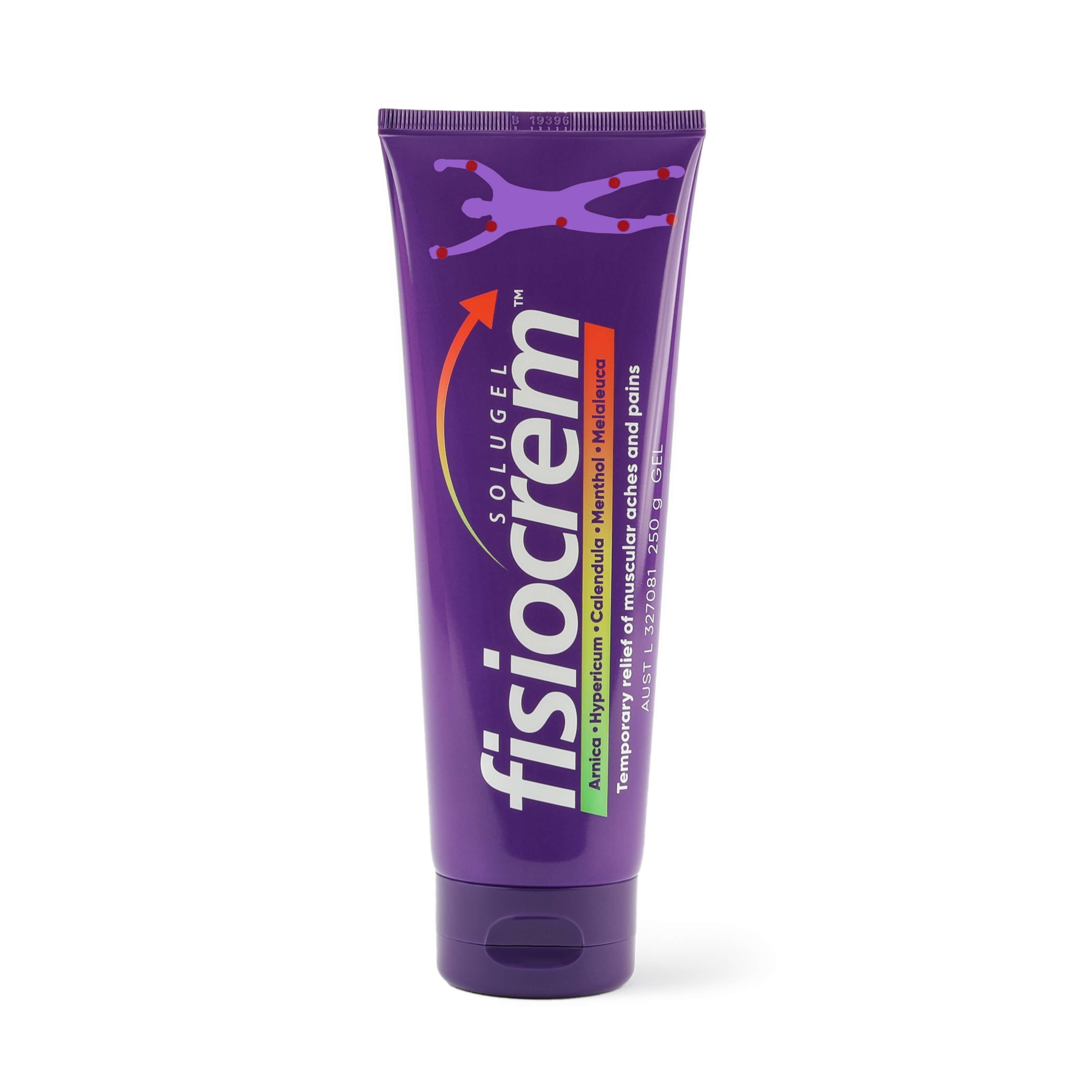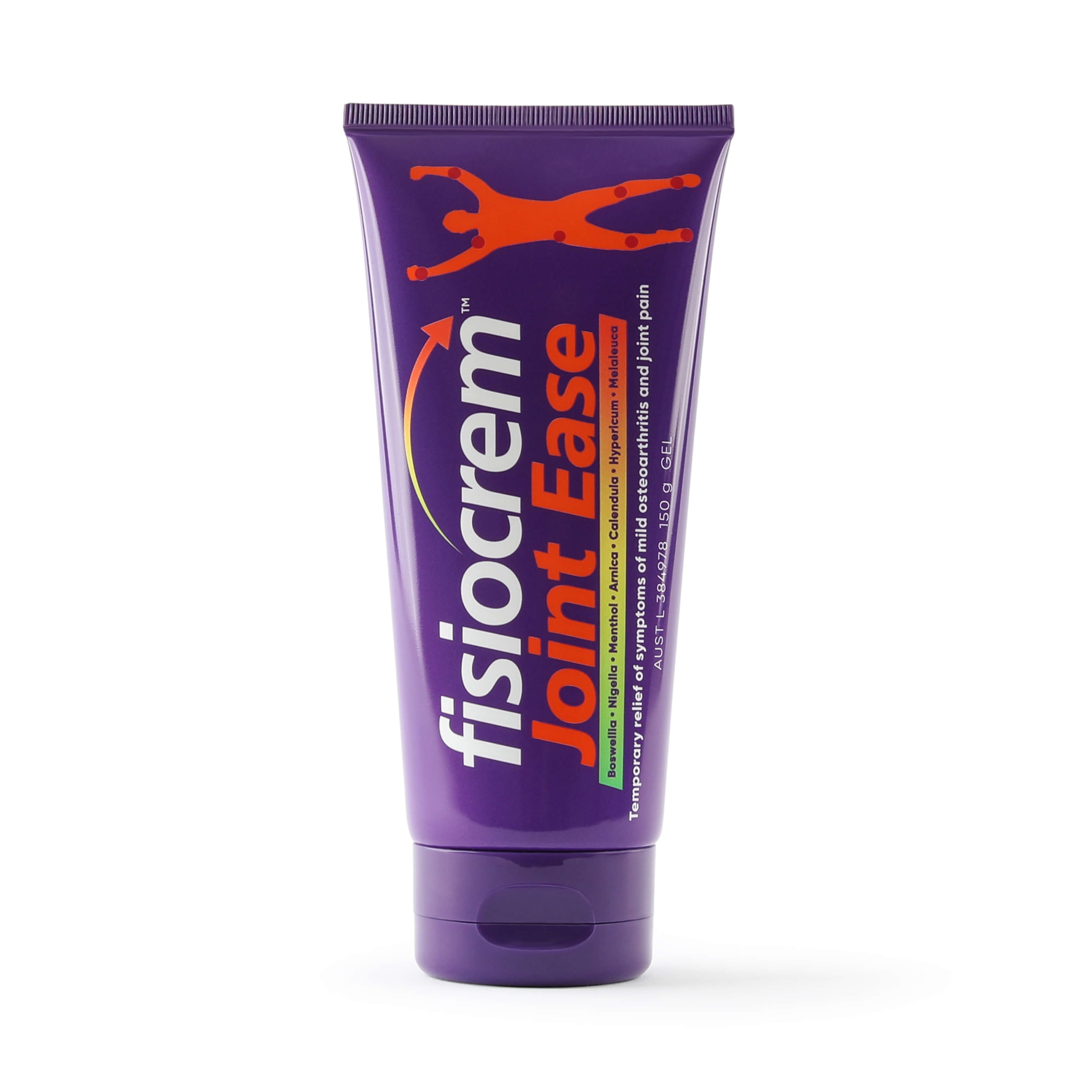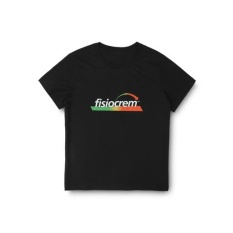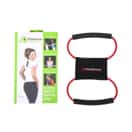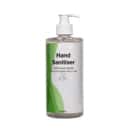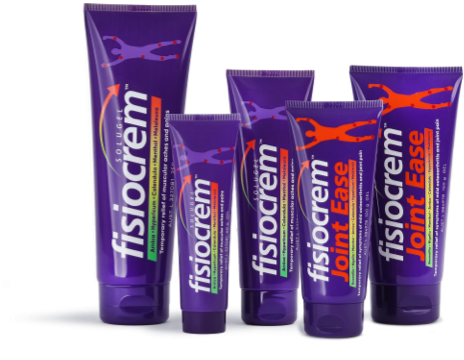Mild arthritis affects millions of people around the world. It causes joint pain, stiffness, and discomfort. These symptoms can make daily activities difficult.
With National Arthritis Week in October, it’s the perfect time to discuss ways to manage and relieve mild arthritis symptoms. In this article, we will look at ways to reduce mild arthritis pain. We will focus on lifestyle changes and topical treatments, such as fisiocrem Joint Ease.
Understanding Mild Arthritis
Mild arthritis is often an early stage of joint-related discomfort where the symptoms are present but not severe. It can affect people of any age, though it’s more common as we get older.
The most common type of mild arthritis is mild osteoarthritis. This condition affects the joints and causes cartilage to break down. As a result, it leads to pain and inflammation.
Symptoms of mild arthritis include joint pain, tenderness, and stiffness. You may also notice a decrease in your range of motion. These symptoms can get worse over time if you do not treat them.
The Importance of Early Treatment for Mild Arthritis
Managing mild arthritis early can prevent the condition from worsening. Early intervention helps maintain joint function and mobility while minimising pain and inflammation. Without proper care, mild arthritis can progress to more severe forms, significantly impacting your quality of life. By addressing it early, you can lead an active and fulfilling life, even with mild arthritis.
Topical Treatments for Mild Arthritis Pain Relief
For mild arthritis relief, topical treatments like creams and gels are popular. They can provide effective pain relief.
fisiocrem Joint Ease is a topical anti-inflammatory cream formulated to address mild arthritis pain. This topical mild arthritis gel helps reduce inflammation, relieve pain, and promote healthy joint function.
How fisiocrem Joint Ease Works
fisiocrem Joint Ease combines menthol & naturally derived active ingredients with scientific innovation to provide effective relief from mild arthritis symptoms. The gel contains key ingredients like Arnica montana, Boswellia serrata, Nigella Sativa, Calendula, Menthol, Melaleuca, and Hypericum, which work together to reduce inflammation, soothe soreness, and support joint flexibility. Its effective formula allows for easy application without a greasy residue, making it a convenient option for daily use.
Menthol & Naturally Derived Active Ingredients in fisiocrem Joint Ease
- Arnica Montana: Known for its anti-inflammatory properties, Arnica Montana helps to reduce joint pain and swelling.
- Boswellia Serrata: This resin extract helps reduce pain and improve joint function.
- Calendula: Helps repair damaged tissue and supports body tissue regeneration.
- Hypericum:(St Johns Wort), Helps to relieve mild swelling & stiffness.
- Melaleuca: (Tea tree oil) Is an anti-inflammatory & enhances the dermal penetration of the active ingredients.
- Nigella Sativa: Helps to relieve mild joint aches, pains, and soreness.
- Menthol: Relieves pain and helps to stimulate blood flow to the skin.
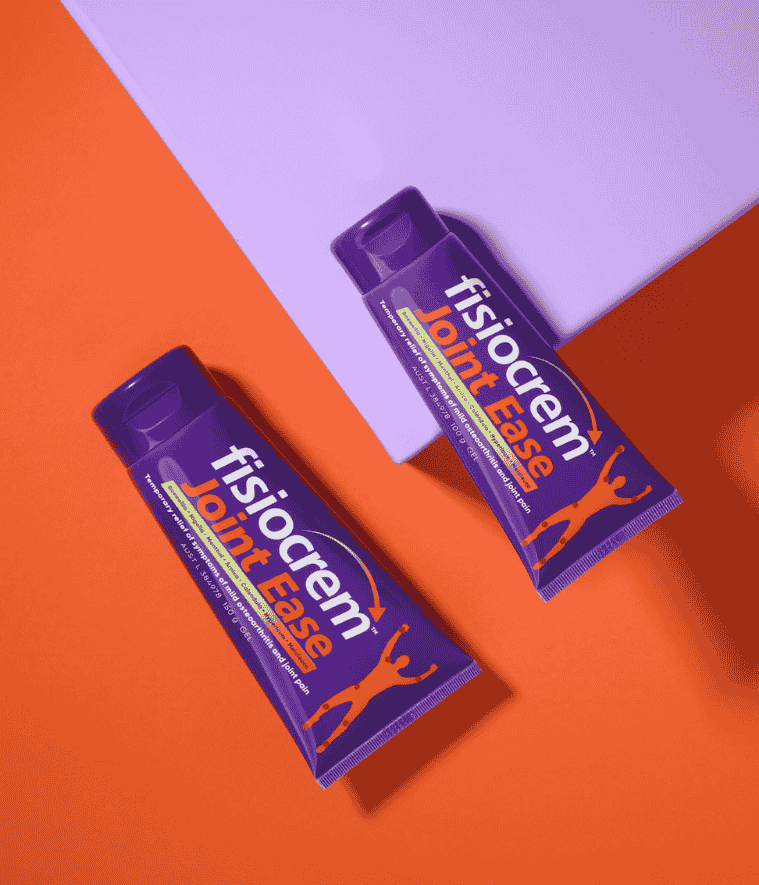
Additional Benefits of Using fisiocrem Joint Ease
In addition to pain relief, fisiocrem Joint Ease helps improve joint mobility and flexibility. This is important for staying active. Using fisiocrem Joint Ease regularly can help ease mild joint stiffness and soreness. This allows you to move more freely during the day.
Incorporating fisiocrem Joint Ease into Your Routine
To get the most out of fisiocrem Joint Ease, it’s essential to apply the product correctly. Use a small amount of the gel on the affected area and gently massage it into the skin until fully absorbed. Since the product provides temporary relief, consistency is key to managing ongoing mild arthritis symptoms.
Lifestyle Changes to Manage Mild Arthritis
In addition to topical remedies, lifestyle changes can play a significant role in managing mild arthritis symptoms. Staying active is crucial for keeping joints flexible and reducing stiffness. Low-impact exercises like swimming, cycling, and walking are ideal for individuals with mild arthritis.
Also, eating a healthy diet with anti-inflammatory foods can help reduce joint inflammation. Foods such as leafy greens, fatty fish, and nuts are ideal sources of anti-inflammatories.
The Role of Exercise in Mild Arthritis Relief
Exercise is a critical component of any management plan. Low-impact activities like yoga, swimming, and tai chi can help strengthen the muscles around your joints. These exercises improve mobility without putting too much strain on the affected areas. Regular physical activity keeps joints flexible and reduces stiffness, making it easier to go about your day.

The Impact of Diet on Mild Arthritis
A balanced diet rich in anti-inflammatory foods can complement the use of fisiocrem Joint Ease and other treatments. Foods like salmon, olive oil, berries, and leafy greens help reduce inflammation. Incorporating more whole foods and fewer processed items can significantly impact your overall joint health.
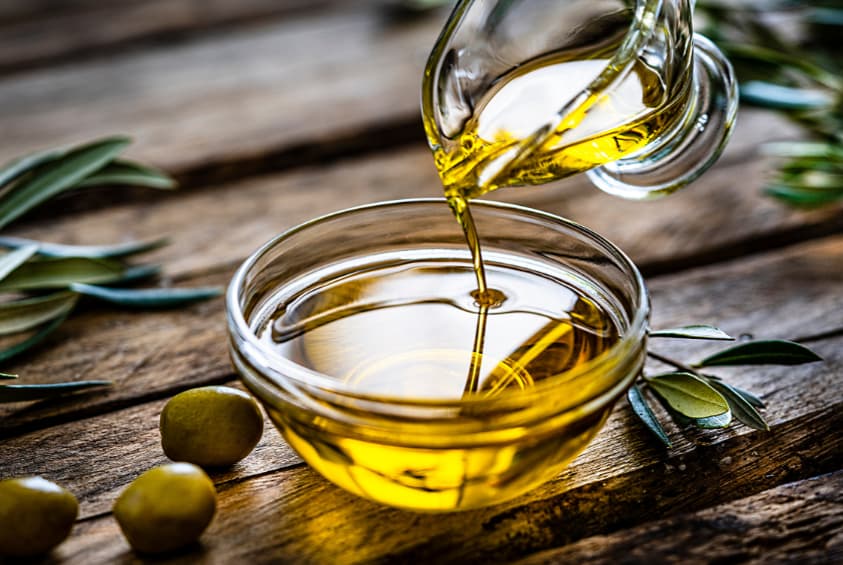
National Arthritis Week: Raising Awareness
National Arthritis Week takes place in October. October is a time to raise awareness about mild arthritis and its impact on daily life. It provides a platform for sharing resources, support networks, and the latest research on managing the condition.
By joining events this week, you can meet others with similar experiences. You can also discover new ways to manage your mild arthritis symptoms. Learn more about National Arthritis Week.
Conclusion
Managing mild arthritis doesn’t have to be overwhelming. Using topical treatments like fisiocrem Joint Ease, making lifestyle changes, and staying active can help reduce pain. These steps can also improve your quality of life. National Arthritis Week is a great time to take action, educate yourself, and find the support you need.
fisiocrem Solugel vs fisiocrem Joint Ease
When it comes to managing pain, from sore muscles, sprains, or mild arthritis, selecting the right topical treatment can greatly improve your comfort and recovery.
fisiocrem Australia offers two effective topical products: fisiocrem Solugel and fisiocrem Joint Ease. In this blog, we will discuss the differences between the two gels. We will also discuss their benefits and answer common questions about relieving muscle and mild joint pain.
fisiocrem Solugel - Muscle pain relief
Crafted to alleviate muscle-related pain and mild sports injuries. fisiocrem Solugel offers relief for a diverse range of individuals. This includes people with back pain from work, muscle pain, and health professionals looking for treatment options for clients.

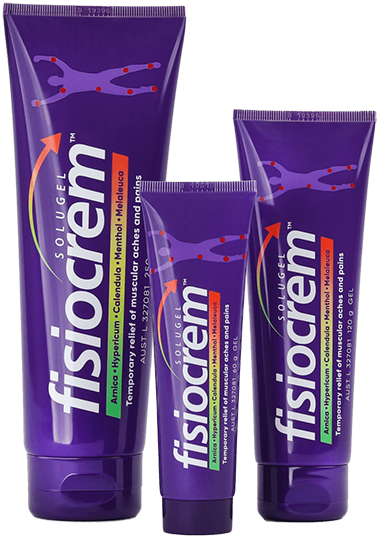
Contains 5 Active Ingredients:
fisiocrem Solugel expertly combines five powerful active ingredients: Arnica, Hypericum, Calendula, Melaleuca, and Menthol. The ingredients are carefully balanced to help relieve muscle pain, speed up recovery after exercise, and work together simultaneously. This precise formulation also ensures that the product remains non-greasy and absorbs well into the skin.
A clinical study has shown that the specific percentages of these active ingredients deliver effective results. Since its development, we have adhered to this formula, ensuring consistent, high-quality muscle pain relief. Our commitment to maintaining this original formula ensures that fisiocrem Solugel continues to provide the reliable results our customers depend on (Ramon et al, 2022).
Key Benefits:
- Aids in the healing of minor bod tissue injuries
- Relieve symptoms of soft body tissue trauma
- Helps in the healing of minor muscle injuries
- Relieve mild muscle inflammation
- Helps in the management of muscle sprain and strain
- Relieve muscle pain and soreness
- Relieve bruise pain and swelling
- Helps improve muscle recovery time
You can use fisiocrem Solugel alongside blood-thinning medications.
fisiocrem Joint Ease - Mild arthritis pain relief
Formulated to target specific joint concerns including mild joint pain, mild arthritis relief, and mild osteoarthritis. fisiocrem Joint Ease caters to the needs of individuals, particularly the elderly and those facing joint health challenges. fisiocrem Joint Ease is for those seeking a reliable option for improved mobility and joint comfort.

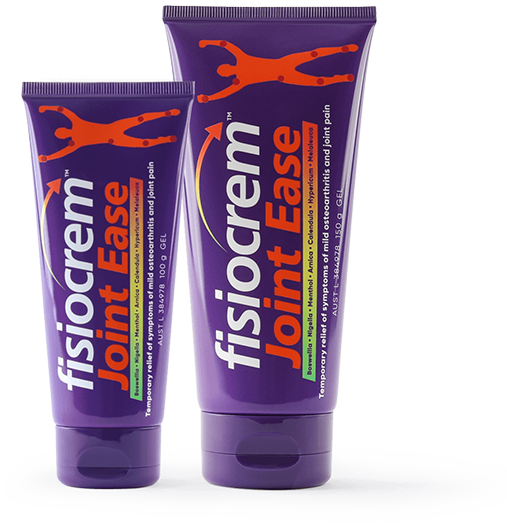
Contains 7 Active Ingredients:
fisiocrem Joint Ease features the same 5 active ingredients as fisiocrem Solugel, plus 2 additional botanical ingredients: Boswellia and Nigella. The original actives found within fisiocrem Solugel are in lower percentages within fisiocrem Joint Ease. This is to avoid diminishing the effectiveness of the new additional botanical ingredients. This balanced formulation also ensures the gel remains non-greasy, absorbs well into the skin, and provides maximum comfort.
Key Benefits:
- Relieve mild joint aches and pains
- Relieve symptoms of mild arthritis and mild osteoarthritis
- Helps promote healthy joint function
- Relieve mild joint inflammation and swelling
- Maintain joint mobility and flexibility
- Relieve mild joint pain and soreness
- Helps improve joint mobility
- Relieve mild joint stiffness
What do both products do?
Both fisiocrem Solugel and fisiocrem Joint Ease are topical anti-inflammatories, suitable for use alongside oral anti-inflammatories or diclofenac tablets.
Before using our products, talk to your doctor if you are taking medications or have health conditions. This will ensure that it is suitable for you. Your doctor can provide guidance on whether our products are suitable for you based on your individual health needs.
Comparing fisiocrem Solugel and fisiocrem Joint Ease
Both products provide pain relief, but their formulations cater to different needs.
fisiocrem Solugel is best suited for muscle pain, such as soreness from physical activity or minor muscle injuries.
fisiocrem Joint Ease relieves mild joint pain and reduces symptoms of mild arthritis, like joint stiffness. This makes it an excellent option for individuals dealing with these joint-related conditions.
Pain Management with fisiocrem Products
Managing pain effectively often requires a combination of treatments. Here are some tips for getting the most out of fisiocrem products:
- Regular Application: Consistently applying the gel to the affected area can help maintain pain relief and support healing.
- Gentle Massage: Gently massaging the gel into the skin can improve absorption and enhance its effects.
- Using fisiocrem along with other treatments like physiotherapy, stretching, and rest can help manage pain effectively.
Choosing the right pain relief cream can significantly impact your comfort and recovery. Whether you’re dealing with muscle pain or mild arthritis, fisiocrem Solugel and fisiocrem Joint Ease are effective treatment options that fit your needs. Understanding the differences and benefits of each product helps you make better decisions and manage your pain more effectively.
You can find both fisiocrem Solugel and fisiocrem Joint Ease, Australian pain relief products, in stores nationwide.
FAQs: Answering Your Questions on Pain Relief
What is the best ointment for muscular and mild joint pain?
fisiocrem Solugel is more suitable for muscular pain.
We recommend fisiocrem Joint Ease for mild joint pain, including mild arthritis and mild osteoarthritis.
What are the best ways to get rid of muscle pain?
Regularly using a muscle pain cream like fisiocrem Solugel can help reduce muscle pain. Resting, staying hydrated, and doing gentle stretches are also beneficial. These actions can all work together to alleviate muscle pain.
What are some ointments that are good for mild joint pain?
fisiocrem Joint Ease specifically targets mild joint pain and provides effective relief for mild arthritis, supporting joint health.
What is the best cream for a sprained ankle?
For a sprained ankle, fisiocrem Solugel can help reduce inflammation and pain, promoting faster recovery.
Anti-inflammatory creams and gels – Do they work?
Yes, anti-inflammatory creams and gels like fisiocrem Solugel and fisiocrem Joint Ease can effectively reduce inflammation and provide temporary pain relief.
What is an anti-inflammatory cream?
An anti-inflammatory cream contains ingredients that help reduce inflammation and swelling in the affected area, providing pain relief and promoting healing.
What is the best soothing gel for muscle pain?
fisiocrem Solugel is an excellent choice for soothing muscle pain because of its blend of active ingredients.
Which is the best pain relieving cream?
fisiocrem Solugel and fisiocrem Joint Ease are both effective topical treatments. The choice depends on whether the pain is muscular or joint related.
How do pain relief creams relieve pain?
Pain relief creams absorb into the skin to bring anti-inflammatory and pain-relieving ingredients to the affected area.
Which pain relieving cream works best for mild arthritis?
fisiocrem Joint Ease is specifically formulated to temporarily relieve mild arthritis. It also supports overall joint health and helps to reduce pain.
How does pain relief gel work?
The skin absorbs pain relief gels, delivering ingredients that reduce inflammation and relieve pain in the specific area.
Citations
- Ramon et al Ortho & Rheum Open Access J 20(1): OROAJ.MS.ID.556028 (2022) This study was funded by fisiocrem.
Seasonal Changes and the effect on mild arthritis
Seasonal changes can indeed have a profound impact on individuals with mild arthritis and mild osteoarthritis (Mori et al. 2019). Different weather conditions, such as temperature, pressure, humidity, sunshine, clouds, wind, and rain, can affect mild arthritis symptoms. Therefore, adapting lifestyle strategies to manage mild arthritis effectively throughout the year is important (Iikuni et al. 2007).
As winter sets in, many patients experience a noticeable uptick in musculoskeletal symptoms. This increase in discomfort because of the cold weather, can trigger muscle spasms and reduce blood circulation, causing joint pain and stiffness (Mori et al. 2019). Research shows that colder temperatures can increase pain levels and stiffness in joints (Aikman, 1997).
Understanding the effect of seasonality on joint pain is integral to developing effective management strategies (Mori et al. 2019).
In this article, we’ll explore the intricate relationship between cold weather and mild arthritis, offering practical tips to help you navigate the winter season with greater comfort. We will also introduce you to fisiocrem Joint Ease. A topical solution that helps with mild osteoarthritis, mild arthritis, mild joint pain, and inflammation.
Understanding Cold Weather & Mild Arthritis:
Cold weather can be particularly harsh on those with mild arthritis, intensifying pain and stiffness associated with the condition. The physiological response to cold temperatures plays a significant role in aggravating symptoms.
When exposed to cold air, our blood vessels constrict, reducing blood flow to the extremities of the body such as the hands and feet. The decrease in temperature can increase sensitivity and pain causing the joints to feel stiffer (Cheung, 2015).
Additionally, fluctuations in barometric pressure, often accompanying cold fronts, can further contribute to joint discomfort. An increase in barometric pressure may cause joint discomfort to become more evident (Wu et al. 2022).
The weather not only affects the conditions of mild osteoarthritis symptoms, but it also affects the ease and willingness of patients to seek medical treatment. Heavy rains, snow and intense winds may make visiting health professionals increasingly difficult for patients. Moreover, extreme cold weather may also affect a person’s willingness to engage in outdoor activities (Wu et al. 2022).
Tips for Managing Mild Arthritis in Winter:
1: Stay Warm:
Ensuring proper insulation against the cold is vital for easing mild winter joint pain. Wearing warm clothes, layering, and using heated blankets can preserve body heat and ease joint pain. Remember to cover areas that are prone to pain to stay comfortable during the colder months. Wearing warmer clothes in cold weather can help manage mild arthritis and mild joint pain during winter (Mori et al. 2019).
2: Maintain Physical Activity:
While it may be tempting to hibernate indoors during winter, staying active is crucial for managing mild arthritis. Low-impact exercises such as walking, swimming, or yoga can help maintain joint flexibility and strengthen surrounding muscles (Kettunen et al. 2004).
Need support in staying active with mild arthritis?
Join a virtual group exercise program designed to boost physical activity levels. From home, engage in weekly live sessions led by knowledgeable instructors, guiding personalised routines. The 12-week program offers support, motivation, and resources to seamlessly integrate safe exercises. These tailored exercises help to alleviate discomfort for a more manageable lifestyle.


3: Topical mild arthritis pain relief creams or gels
Topical anti-inflammatory and analgesic creams can help provide relief for mild arthritis, mild osteoarthritis and mild joint pain. Topical creams and gels tend to have fewer side effects when compared to oral medications (Jurca et al. 2020).
Applying a topical mild arthritis pain relief cream directly to the affected joints can help alleviate discomfort and reduce inflammation, allowing for improved mobility and comfort.
You can find fisiocrem Joint Ease online or at your local pharmacy, and Chemist Warehouse.
fisiocrem Joint Ease contains active ingredients including Boswellia and Nigella. It provides temporary relief for mild arthritis and mild joint pain.
Nigella Sativa oil has anti-inflammatory and analgesic effects helping to relieve mild joint pain and swelling (Mahboubi et al. 2018). Boswellia Serrata can help reduce swelling, and pain and ease stiffness (Etzel, 1996).
fisiocrem Joint Ease can help you to keep you moving and feel more comfortable during the winter season.
Incorporating this topical mild arthritis cream into your daily routine can help you manage your symptoms. Enhance your overall well-being during the colder months with fisiocrem Joint Ease.


As winter arrives, managing mild arthritis and mild joint pain becomes a top priority for many. Understanding how cold weather affects mild arthritis symptoms and using proactive strategies can help reduce discomfort and make winter more comfortable.
Remember, fisiocrem is here to support you on your journey, providing topical relief when you need it most.
FAQs:
Why is mild arthritis worse in winter?
Cold weather can cause blood vessels to constrict, leading to increased joint stiffness and pain.
Does cold weather affect mild arthritis?
Yes, changes in temperature and barometric pressure can exacerbate symptoms of mild arthritis.
What are your top tips for dealing with mild arthritis pain in winter?
Stay warm, stay active, and consider incorporating topical pain relief gels like fisiocrem Joint Ease into your routine.
How to treat mild joint pain in the winter?
Focus on warmth, exercise, and topical remedies to alleviate discomfort and improve mobility.
Is mild arthritis worse in winter or summer?
While both seasons present challenges, many individuals report increased pain and stiffness during the colder months.
Citations
- Aikman, H. (1997). International Journal of Biometeorology, 40(4), 192–199.
- Cheung, S. S. (2015). Responses of the hands and feet to cold exposure. Temperature, 2(1), 105–120.
- Etzel, R. (1996). Phytomedicine, 3(1), 91-94.
- Jurca, T., Józsa, L., Suciu, R., Pallag, A., Marian, E., Bácskay, I., Muresan, M., Liana Stan, R., Cevei, M., Cioara, F., Vicas, L., Fehér, P. (2020). Molecules, 26(1).
- Kettunen, J. A., & Kujala, U. M. (2004). Scandinavian Journal of Medicine & Science in Sports, 14(3), 138–142.
- Iikuni, N., Nakajima, A., Inoue, E., Tanaka, E., Okamoto, H., Hara, M., Tomatsu, T., Kamatani, N., Yamanaka, H. (2007). Volume 46(5) 846-848.
- Mahboubi, M., Mohammad Taghizadeh Kashani, Leila., Mahboubi, M. (2018). Phytomedicine, 46, 69-77.
- Mori, H., Sawada, T., Nishiyama, S., Shimada, K., Tahara, K., Hayashi, H., Kato, E., Tago, M., Matsui, T., Tohma, S. (2019). BMC Musculoskeletal Disorders, 20(1).
- Wu, R.-Y., Pan, R.-H., Wu, C.-Y., Chan, C.-L., & Yeh, H.-J. (2022). BMC Musculoskeletal Disorders, 23(1).
Introduction to Mild Osteoarthritis Pain
Mild Osteoarthritis (OA) is a degenerative joint disease that affects millions of people worldwide (Sinusas, 2012). It occurs when the protective cartilage that cushions the ends of your bones wears down over time. As a result, the bones begin to rub against each other, leading to pain, stiffness, and swelling in the affected joints. Mild osteoarthritis pain can significantly impact daily activities and quality of life, making effective pain management crucial.
The Role of Topical Creams in Pain Management
Topical creams offer a convenient and non-invasive way to manage mild osteoarthritis pain. Topical creams and gels are applied directly to the skin over the affected area, delivering targeted pain relief.
These creams can contain various active ingredients, such as menthol, nigella, or capsaicin (Sinusas, 2012). These actives work by numbing the nerves or reducing inflammation in the joints (Mahboubi, 2017).
Topical creams can alleviate pain and stiffness, enhancing joint range of motion for individuals with mild osteoarthritis (Gemmell et al., 2003)(Kraemer et al., 2004).
Introduction to fisiocrem Joint Ease
fisiocrem Joint Ease is a topical cream/gel specifically formulated to provide temporary relief from symptoms associated with mild osteoarthritis pain. Its contains menthol and naturally derived active ingredients, including nigella, boswellia, arnica, calendula, hypericum, and melaleuca. We carefully selected these ingredients for their anti-inflammatory and analgesic properties.
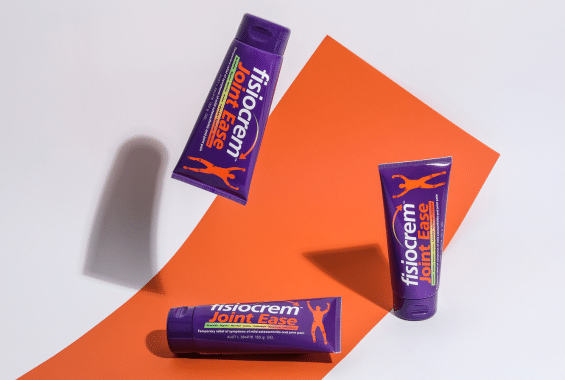
Our hero active Ingredients found within fisiocrem Joint Ease
Nigella Sativa Oil helps to protect cartilage from damage and effectively relieve pain as an anti-inflammatory for individuals with mild osteoarthritis (Kooshki et al., 2016)(Azizi et al., 2019)(Ghamari, et al., 2023).
Boswellia helps alleviate pain and stiffness, improves joint function, and reduces swelling, providing effective relief for individuals suffering from mild osteoarthritis. This active ingredient work together to provide comprehensive relief for those experiencing the discomfort and limitations associated with mild osteoarthritis (Bannuru et al., 2018)(Kimmatkar et al., 2003).
Efficacy of fisiocrem Joint Ease in Relieving Mild Osteoarthritis Pain
fisiocrem Joint Ease offers multiple benefits for individuals suffering from mild osteoarthritis pain. It helps reduce swelling and inflammation in the joints and provides relief from pain. Additionally, fisiocrem Joint Ease supports tissue repair and regeneration, helping to maintain joint health and mobility over time.
How fisiocrem Joint Ease Enhances Joint Function and Mobility
In addition to providing pain relief, fisiocrem Joint Ease helps enhance joint function and mobility. The active ingredients work together to promote healthy joint function and maintaining flexibility. fisiocrem Joint Ease supports overall joint health and reduces the symptoms of stiffness and immobility associated with mild osteoarthritis.
fisiocrem Joint Ease can assist individuals with mild osteoarthritis in staying active and mobile, whether as part of a daily routine or for acute pain flare-ups.
Using fisiocrem Joint Ease for Mild Osteoarthritis Pain Relief
fisiocrem Joint Ease is a simple and effective mild osteoarthritis treatment, designed to be applied directly to the affected area as needed. Easy to use, it involves massaging a small amount of cream into the skin over the painful joint until fully absorbed. For optimal results in managing mild osteoarthritis pain, we recommend integrating fisiocrem Joint Ease into your regular treatment routine.
If you have sensitive skin, test this product on a small area of skin before applying it to a larger area.
FAQs (Frequently Asked Questions)
1. How long does it take to experience relief with fisiocrem Joint Ease?
The time it takes to feel relief from fisiocrem Joint Ease varies for each person. Many users report feeling the effects shortly after applying it. To achieve optimal results, we recommend using the cream regularly as part of your pain management routine.
2. Can fisiocrem Joint Ease be used alongside other medications?
fisiocrem Joint Ease can be used alongside some medications including warfarin and oral anti-inflammatories. However, it is advisable to consult with a healthcare professional to ensure compatibility with any existing treatments or medications.
3. Are there any side effects associated with fisiocrem Joint Ease?
While fisiocrem Joint Ease is well-tolerated by most individuals, some people may experience mild skin irritation or allergic reactions. If you experience any adverse effects, discontinue use immediately and consult with a healthcare professional.
For added safety, it is advisable to conduct a patch test as a safety measure. Just apply a small amount of the product to a small area of skin before using it on a larger area. This method helps to ensure that the product is well-tolerated by the individual prior to broader application.
4. Where can I purchase fisiocrem Joint Ease?
fisiocrem Joint Ease mild osteoarthritis pain relief cream is available for purchase online and at select retailers.
Citations
- Azizi, F., Ghorat, F., Rakhshani, M., Rad, M. (2019). Journal of Herbal Medicine, 16.
- Bannuru, R., Osani, M., Al-Eid, F., Wang, C. (2018). 48(3), 416-429. Retrieved from https://www.sciencedirect.com/science/article/abs/pii/S0049017218300027
- Gemmell, H., Jacobson, B., Hayes, B. (2003). Journal of Manipulative and Physiological Therapeutics, 26(5) 322
- Ghamari, M., Salari, M., & Khodashahi, M. (2023). Traditional and Integrative Medicine, 8(3).
- Kimmatkar, N., Thawani, V., Hingorani, L., Khiyani, R. (2003). Phytomedicine, 10(1), 3-7.
- Kooshki, A., Forouzan, R., Rakhshani, M., & Mohammadi, M. (2016). A Crossover Clinical Trial, 8(11) 3193-3197
- Kraemer, W., Ratamess, N., Anderson, J., Maresh, C., Tiberio, D., Joyce, M., Messinger, B., French, D., Rubin, M., Gomez, A., Volek, J., Hesslink, R. (2004). Retrieved from https://www.jrheum.org/content/31/4/767.short
- Mahboubi, M. (2017). Complementary Therapies in Clinical Practice. 26, 1-4.
- Sinusas, K. (2012). American family Physician, 85(1) 49-56
- Yu, G., Xiang, W., Zhang, T., Zeng, L., Yang, K., & Li, J. (2020). BMC Complementary Medicine and Therapies, 20(1).
Wholesale & Practitioners
fisiocrem Australia is devoted to helping you manage your pain, and we have been since 2009. We develop high-quality topical pain relief products that stop pain from interfering with your regular activity.
Are you visiting from New Zealand?
Visit fisiocrem New Zealand here

